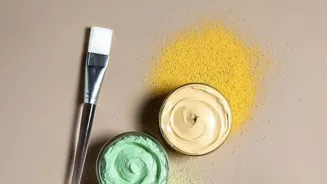Discover the world of facial masks & find the perfect match for your skin. Unveil the secrets to glowing skin!
In the hustle-bustle of daily life, especially in our Indian weather, taking care of our skin
often takes a backseat. Dust, pollution, and stress – all these take a toll on our complexion, leaving it dull and tired-looking. But fret not! Facial masks are here to rescue.
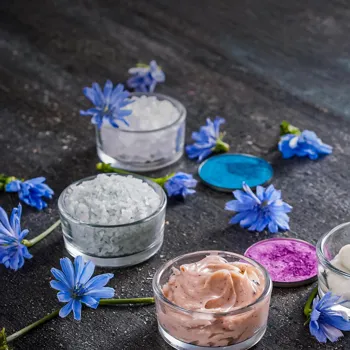
These aren't just for parlour visits anymore; they are a simple and effective way to pamper your skin right at home, giving you that healthy glow you've been dreaming of. Finding the perfect mask for your skin type can feel like searching for a needle in a haystack.
But once you understand your skin's needs and the different types of masks available, you'll be well on your way to a brighter, healthier complexion. So, let's dive into the world of facial masks and discover how to choose the right one for you!
Understand your skin type to choose the right mask
Before you even think about browsing through shelves of colorful masks, it's crucial to understand your skin type. Is it oily, dry, normal, or combination? Knowing this will help you narrow down your options and choose a mask that specifically targets your skin's needs.
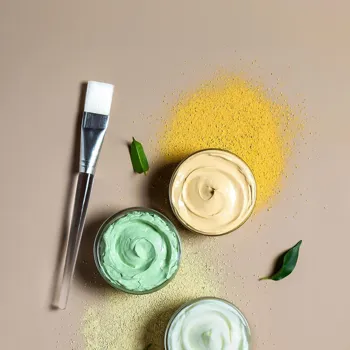
Oily skin, for example, tends to produce excess sebum, leading to clogged pores and breakouts. Signs of oily skin include a shiny appearance, especially in the T-zone (forehead, nose, and chin), and frequent acne.
If you have oily skin look for masks that can help absorb excess oil and unclog pores. Dry skin, on the other hand, lacks moisture and can feel tight, flaky, and itchy. Look for masks with ingredients that hydrate and nourish the skin, providing a much-needed boost of moisture.
Normal skin is relatively balanced, with neither excessive oiliness nor dryness. This skin type can benefit from masks that maintain its natural balance and provide a healthy glow. Combination skin has a mix of oily and dry areas, typically with an oily T-zone and dry cheeks.
This skin type requires a mask that addresses both concerns, balancing oil production and hydrating dry areas. Once you pinpoint your skin type, you're ready to explore the different types of facial masks available.
Facial masks cater to various skin concerns with clay, sheet, cream, and gel types, each offering unique benefits
The world of facial masks is vast and varied, with a mask for almost every skin concern imaginable. Clay masks are a popular choice for oily and acne-prone skin. The clay helps in absorbing excess oil, removing impurities, and unclogging pores.
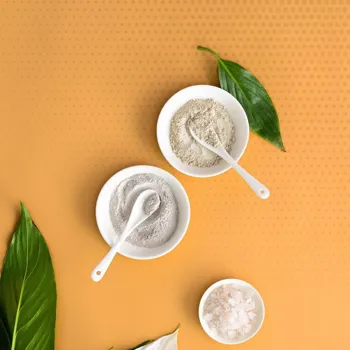
Look for masks containing bentonite or kaolin clay, which are known for their absorbent properties. Sheet masks are another popular option, especially for those seeking hydration. These masks are typically made of cotton or cellulose and are soaked in serum.
They are super easy to use and can be applied in just a few minutes. Cream masks offer intense hydration and are best suited for dry and mature skin. These masks are formulated with rich emollients and humectants that moisturize and nourish the skin, leaving it soft and supple.
Gel masks have a cooling and soothing effect on the skin, making them a good choice for sensitive or irritated skin. These masks are often formulated with ingredients that calm inflammation and reduce redness.
Exfoliating masks help to remove dead skin cells, revealing a brighter and smoother complexion. These masks can contain either physical exfoliants, such as granules, or chemical exfoliants, such as AHAs or BHAs.
Choose masks with ingredients that suit your skin type: oily, dry, or sensitive
When choosing a facial mask, pay close attention to the ingredients listed on the packaging. Certain ingredients can be particularly beneficial for specific skin types and concerns. For oily skin, look for ingredients like tea tree oil, salicylic acid, and activated charcoal.
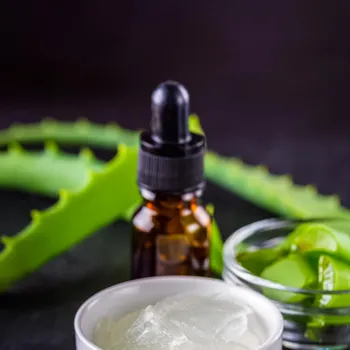
Tea tree oil has antibacterial properties that can help fight acne, while salicylic acid is a beta-hydroxy acid (BHA) that exfoliates the skin and unclogs pores. Activated charcoal acts like a magnet, drawing out impurities and excess oil from the skin.
For dry skin, seek out masks with hyaluronic acid, glycerin, and shea butter. Hyaluronic acid is a humectant that attracts moisture to the skin, while glycerin is another humectant that helps to retain moisture. Shea butter is an emollient that nourishes and softens the skin.
For sensitive skin, opt for masks with chamomile, aloe vera, and green tea. Chamomile has anti-inflammatory properties that can soothe irritated skin, while aloe vera is known for its calming and hydrating effects. Green tea is rich in antioxidants that protect the skin from damage.
Use facial mask properly for best results: cleanse, apply, leave, rinse, moisturize
Using a facial mask is relatively simple, but following a few key steps will ensure that you get the most out of your treatment. Start by cleansing your face with a gentle cleanser to remove any dirt, oil, or makeup. This will allow the mask to penetrate deeper into the skin.
Next, apply the mask evenly to your face, avoiding the eye and lip areas. If using a sheet mask, simply unfold it and place it over your face, adjusting it to fit your contours. Leave the mask on for the recommended time, usually 10-20 minutes.
When the time is up, rinse the mask off with lukewarm water. Pat your face dry with a soft towel. Follow up with your regular skincare routine, including toner, serum, and moisturizer. For best results, use a facial mask 1-2 times per week.
Create natural DIY facial masks for different skin types using kitchen ingredients
If you prefer a more natural approach to skincare, you can easily create your own facial masks using ingredients you probably already have in your kitchen. For oily skin, try a mask made with honey, lemon juice, and yogurt.
Honey has antibacterial properties, lemon juice helps to brighten the skin, and yogurt contains lactic acid, which gently exfoliates. For dry skin, try a mask made with avocado, honey, and oatmeal.
Avocado is rich in healthy fats that nourish the skin, honey hydrates, and oatmeal soothes irritation. For sensitive skin, try a mask made with oatmeal, honey, and milk. Oatmeal has anti-inflammatory properties, honey is gentle, and milk soothes and hydrates.
To make a DIY mask, simply combine the ingredients in a bowl and mix well. Apply the mask to your face and leave it on for 10-15 minutes, then rinse off with lukewarm water.
Skin care is unique; experiment to find the perfect mask
Remember, every skin is unique, and what works for one person may not work for another. Pay attention to how your skin reacts to different masks and ingredients, and adjust your routine accordingly. If you experience any irritation or discomfort, discontinue use immediately.
With a little bit of experimentation, you'll find the perfect facial mask to keep your skin looking its best! So, go ahead and treat yourself to a little spa time at home. Your skin will thank you for it!
